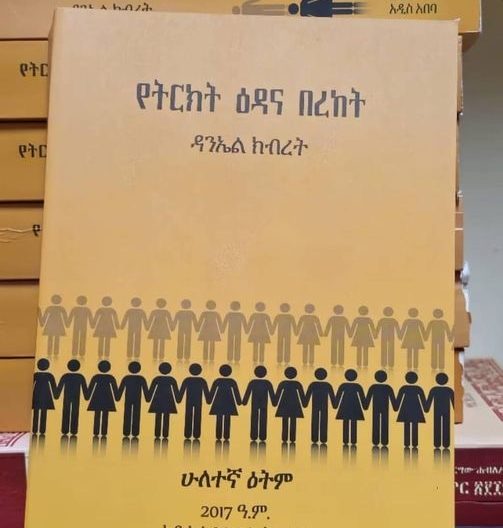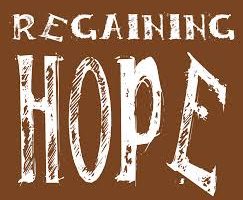
A few days after the launch of the book entitled as Narration’s Debt and Blessing three months ago, the CEO of our agency (Ethiopian Press Agency) asked me to review it for one of our publications. I viewed this request as an exciting opportunity to meet my professional obligation and contribute to our readers’ understanding of this significant work. Determined to find the book, I visited more than four bookstores, including the renowned Addis Ababa University bookstore. Unfortunately, my search was in vain as the book had not yet been widely distributed. Undeterred, I reached out to the author over a phone. After congratulating him on his remarkable contribution to his generation and the generations to come, I requested him to let me know how to get a copy of his work. He then kindly told me to meet the main distributor, a bookstore near the Abrehot Library. Grateful for his assistance, I obtained a copy from a location conveniently situated just a few kilometers away from my office.
Once I began reading the book, I was immediately struck by its depth and brilliance. The author’s mastery of language and the comprehensive treatment of the subject matter captivated my attention. It was evident from the first few pages that this was no ordinary book; it was a meticulously crafted masterpiece of 575 pages.
In the same week, while traveling on one of our local flights, I encountered an interesting coincidence. An official, frequently seen on television, was sitting beside me, and remarkably, we both had the same book (Narration’s Debt and Blessing) in our hands. The shared interest sparked an engaging conversation that filled the 55-minute flight. During our discussion, he shared fascinating insights about the author, noting his deep expertise in the Amharic language and Orthodox traditions, shaped by his upbringing in Bete Kihinet. We both marveled at the author’s ability to leverage this unique background to create a work of exceptional depth and authenticity.
As I delved further into the book, its vast scope became even more apparent. It felt less like a book and more like an ocean of knowledge and wisdom, making it daunting to condense its essence into a single review. Attempting to capture its essence in one article seemed not only insufficient but also unfair to the work itself. I realized that presenting a superficial analysis would diminish its value, and I found myself grappling with how best to approach the assignment given by my CEO.
Despite the delay in completing the review, a new perspective has lately come to me. I have recognized the importance of sharing my impressions and encouraging others to engage with this monumental work. While reviews often summarize key ideas to help readers extract value efficiently, this book’s uniqueness resists such treatment. Its profound themes demand full attention, requiring readers to immerse themselves completely, line by line, from beginning to end, to truly appreciate its richness.
Therefore, rather than attempting to condense its contents, I have decided to share four compelling reasons why this book stands out and why you should consider reading it. My intention is not merely to summarize but to invite you on a journey of discovery, encouraging you to experience the book’s depth and beauty for yourself.
This book, Narration’s Debt and Blessing, distinguishes itself as a profound and insightful exploration of Ethiopia’s socio-political landscape, primarily owing to the remarkable impartiality exhibited by its author, Daniel Kibret. The author is a prominent figure who has been serving as a Minister of Social Affairs and Advisor to Prime Minister Abiy Ahmed (PhD) since he came to power.
Daniel’s remarkable understanding of Ethiopian politics further enriches the book’s value. Drawing on years of experience and adequate knowledge of the country’s history, he skillfully analyzes the destructive narratives propagated during various regimes. His ability to identify and deconstruct these narratives is amplified by his linguistic proficiency in Amharic, which allows him to engage with diverse sources and perspectives. This combination of expertise and access equips him to uncover the roots of divisive rhetoric.
In addition to dissecting the problems caused by past destructive narrations, Daniel offers pragmatic solutions aimed at fostering unity and mitigating the adverse effects of polarized discourse. His proposals are underpinned by a vision of inclusivity and reconciliation. After skillfully analyzing the various narrative discourses, he leads his readers to appreciate and uphold the “Grand Narrative” that would foster unity in nation building. Hereunder, I will discuss four reasons that make the book worth reading.
The first reason is Daniel’s approach to the subject matter with an admirable commitment to neutrality. His refusal to align himself with the perspectives of any particular group, including those associated with his own ethnic background is the clearest indication of the defining strength of the book. This deliberate detachment enhances the credibility of his arguments and enables him to address sensitive issues with objectivity. He provides readers with a balanced lens through which to understand the broader implications of political narratives in Ethiopia by setting a standard for how complex political matters can be discussed constructively.
Second, another remarkable feature that makes Narration’s Debt and Blessing an invaluable read is its extraordinary richness in sources, with over 600 references meticulously cited. These sources span a wide range of disciplines, including religion, economics, politics, history, and culture, providing a solid foundation for the author’s arguments and analyses. By incorporating such an expansive pool of references, the book achieves an impressive depth and breadth, allowing readers to gain a multifaceted understanding of the topics it addresses. This comprehensive approach not only enhances the book’s credibility but also elevates its significance in suggesting solutions in our socio-political circumstances.
What sets Narration’s Debt and Blessing apart is not merely the quantity of sources cited but the exceptional manner in which they are utilized. Daniel organizes these diverse materials with remarkable precision, presenting them in a logical and cohesive sequence that aligns seamlessly with the book’s central arguments. This meticulous organization allows readers to follow his reasoning effortlessly, while simultaneously appreciating the depth of research that underpins his conclusions.
The sources included in the book are not limited to contemporary works; the author also delves into ancient texts, including those dating back several centuries and even before the Common Era. This temporal diversity enables him to trace the evolution of ideas and narratives over time, providing a historical context that enriches his analysis. By referencing such timeless works, he demonstrates a keen understanding of how historical narratives continue to influence modern socio-political realities, thereby offering readers a unique perspective on Ethiopia’s current challenges.
Above all, the skillful integration of these sources significantly enhances the book’s analytical consistency. Each reference is purposefully chosen and expertly deployed to support the author’s intended purpose, creating a compelling and well-supported argument throughout the text. This careful utilization of resources not only elevates the book’s value but also makes it accessible and engaging for a wide range of readers, from policymakers to anyone interested in Ethiopia’s complex history and politics.
Third, another captivating reason to read Narration’s Debt and Blessing is its exceptional comprehensiveness. Unlike many other works, whether focused on history or culture, this book offers an in-depth exploration of the diverse narratives that have shaped Ethiopian society. Daniel carefully examines the full spectrum of narratives that emerge from every corner of the country—from the South, East, North, and West—providing a holistic view of Ethiopia’s cultural and historical evolution. This thorough approach ensures that the book covers the full range of influences that have contributed to the formation of contemporary Ethiopia.
Fourth, what makes this book particularly noteworthy is its inclusion of all relevant narratives—both cultural and historical—that have contributed to the development of modern Ethiopia. It addresses not only the narratives that have had a positive influence on nation-building but also those that have led to destructive consequences in our politics. By acknowledging the role of these diverse narratives, Daniel provides readers with a comprehensive understanding of the complexities that underpin Ethiopia’s current political and social realities. This inclusiveness is crucial, as it helps identify the root causes of Ethiopia’s challenges while also appreciating the multiple perspectives that have shaped the nation’s journey.
Ultimately, the comprehensiveness of Narration’s Debt and Blessing serves as one of its greatest strengths. By embracing the full spectrum of Ethiopia’s cultural and historical narratives, the book offers a broad and balanced examination of the forces that have shaped the nation. This inclusive approach not only provides a more accurate portrayal of Ethiopia’s past but also offers valuable insights into how these diverse narratives can be harmonized to foster national unity and promote future development.
What distinguishes this work is the meticulous evaluation of the diverse narratives shaping Ethiopian society. Daniel begins by identifying and presenting these narratives in a coherent and well-organized sequence, paying particular attention to their historical, cultural, and political contexts. He then subjects each narrative to rigorous analysis, uncovering the ways in which they have contributed to both constructive and destructive outcomes in Ethiopian history.
After this thorough examination, Daniel shifts focus to propose a unified and constructive “Grand Narrative” designed to foster national unity. This proposed narrative is not merely theoretical; it is a carefully considered framework that draws upon the positive elements of Ethiopia’s diverse histories and cultures. By transitioning seamlessly from analysis to solution-oriented discourse, the author provides a roadmap for overcoming fragmentation and building a more inclusive national identity.
In short, for the reasons outline above, this book merits careful reading. It provides valuable insights into the diverse political landscape of the country, thereby enhancing our understanding of the complexities that shape national development. By engaging with its content, we are better equipped to contribute meaningfully to the process of nation-building.
BY WAKUMAN KUDAMA
THE ETHIOPIAN HERALD WEDNESDAY 20 NOVEMBER 2024


